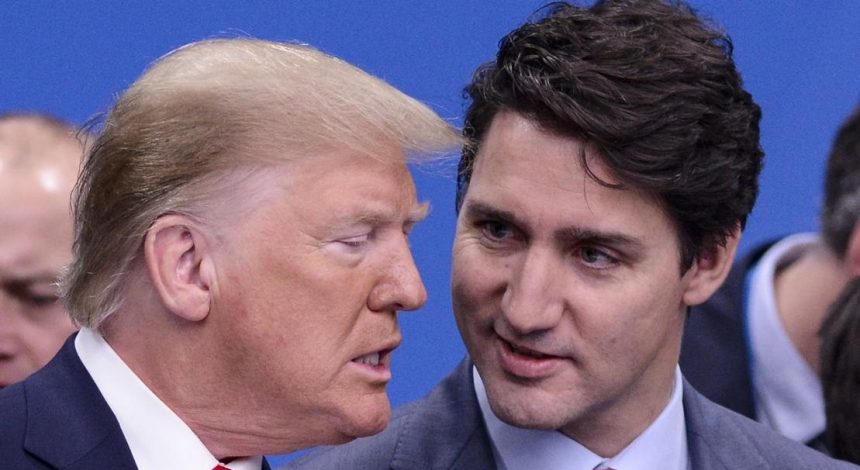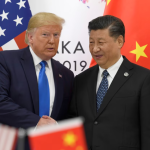Canada and Mexico face mounting uncertainty following U.S. President-elect Donald Trump’s threat to impose 25% tariffs on exports to the United States, their largest trading partner. Both nations are now evaluating potential responses to protect their economies.
Trump announced plans to enact the tariffs via executive orders on his first day back in office, citing what he claims is a failure by Canada and Mexico to address illegal migration and drug trafficking at U.S. borders.
Economic Implications
Economists warn that such tariffs would severely impact both economies, with Mexico being particularly vulnerable due to its heavy reliance on U.S. trade.
“Mexico is deeply tied to the U.S. economy, and any trade dispute would harm both countries significantly, but Mexico would bear the brunt of the damage,” said Jeffrey J. Schott, a senior fellow at the Peterson Institute for International Economics.
Wendy Wagner, an international trade lawyer with Canadian firm Gowling WLG, highlighted similar concerns for Canada.
“A 25% tariff on imports to the U.S. would be an unrealistic and damaging proposition, particularly given Canada’s heavy reliance on the U.S. as an export market,” Wagner said.
Strains Between Canada and Mexico
The tariff threats have caused diplomatic tension between Canada and Mexico. Canadian Prime Minister Justin Trudeau reportedly lobbied Trump during a meeting in Florida, arguing that Canada should not be grouped with Mexico on issues like drug trafficking.
Mexican President Claudia Sheinbaum countered by pointing to Canada’s fentanyl crisis, stating that Mexico should not be used as a scapegoat for electoral gain. Sheinbaum later assured Trump of Mexico’s efforts to address migration and drug trafficking, claiming there would be no “tariff war.”
Schott believes Trump’s strategy is aimed at dividing the countries and undermining the United States-Mexico-Canada Agreement (USMCA), the trade deal that succeeded NAFTA.
“Trump prefers bilateral negotiations and is unlikely to treat this as a North American issue,” Schott noted.
Calls for Alternative Approaches
In Canada, some politicians have suggested pursuing a separate trade deal with the U.S., bypassing Mexico. While Trudeau reaffirmed his commitment to the USMCA, he acknowledged that Canada might explore other options depending on Mexico’s actions.
Bill Reinsch, a senior economic adviser at the Center for Strategic & International Studies, argued that Trump’s tariff threats are likely a precursor to renegotiating the USMCA, which is already scheduled for review in 2026.
“At best, Trump is accelerating negotiations by a year, but the issues remain the same. His threats center on migration and drugs, not trade,” Reinsch said.
Potential Fallout
If implemented, the tariffs could have severe economic repercussions. Canada and Mexico depend heavily on the U.S. market, with 75% and 77% of their exports, respectively, heading south in 2022, according to the MIT Observatory of Economic Complexity.
“For Canada, which is an export-driven economy with a small domestic market, losing access to its primary export destination would be catastrophic,” Wagner said.
Mexico, with its highly integrated automobile sector, would also face significant losses. Schott warned that the costs of tariffs would be passed on to U.S. consumers, raising prices on vehicles and other goods.
“Ironically, damaging Mexico’s economy could exacerbate migration issues, worsening the very problem Trump aims to address,” Schott added.
Retaliation and Uncertainty
Both Mexico and Canada have signaled potential retaliation if the tariffs materialize.
“Mexico’s president has already indicated she would impose counter-tariffs, and Canada’s political climate would likely compel similar measures, leading to inflationary pressures across all three economies,” Reinsch noted.
While Trump’s past use of tariffs on Canadian and Mexican steel and aluminum suggests he may follow through on his threats, some experts believe his negotiating style—threatening first to secure concessions—might avert actual implementation.
Wagner remains hopeful for a diplomatic resolution.
“Tariffs are an imperfect solution and should not be the primary tool for resolving complex trade and migration issues,” she said.
Despite the uncertainty, Schott cautioned against underestimating Trump’s willingness to act, saying:
“He’s done it before and could do it again under the right circumstances.”













